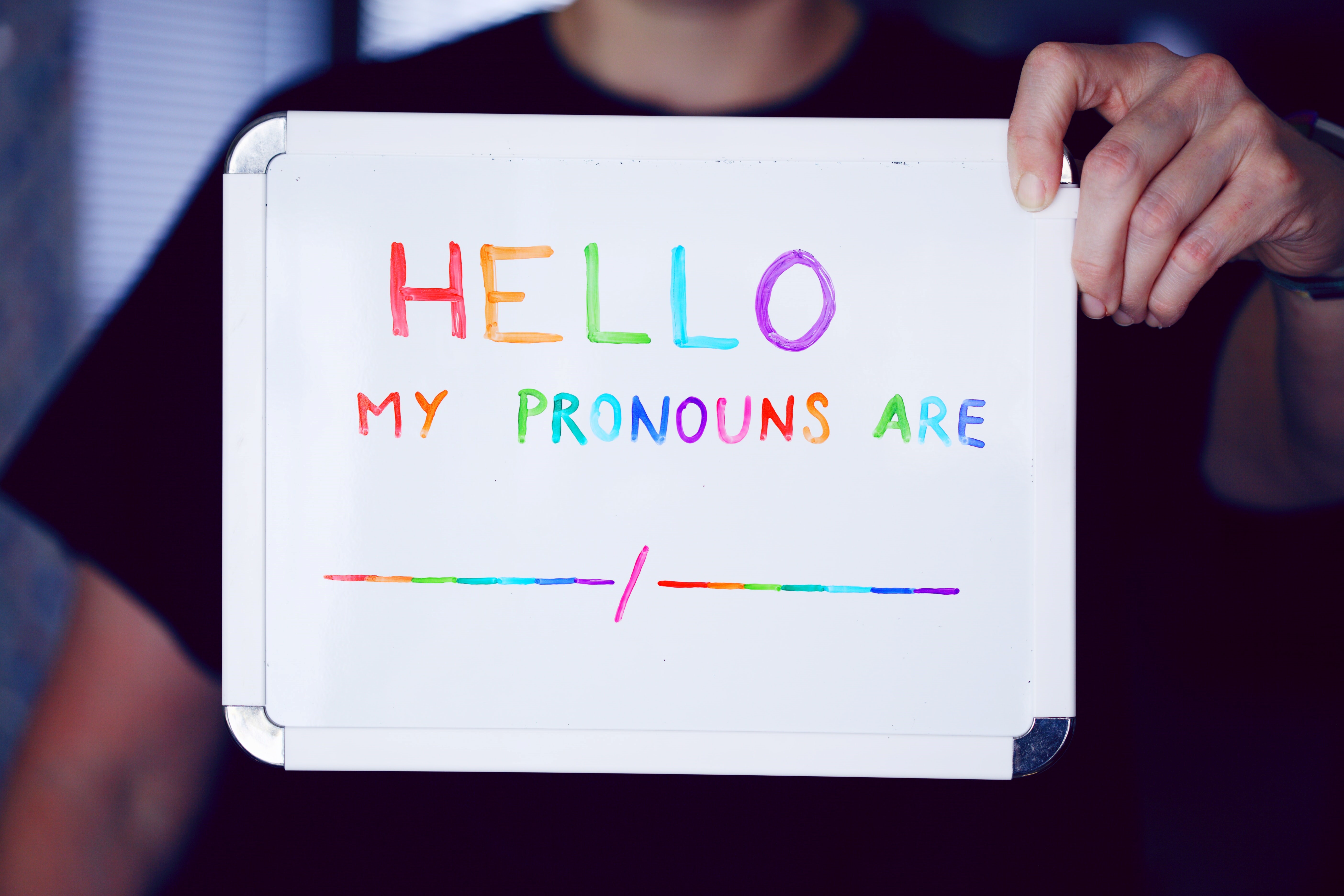Let's Talk about Pronouns; Why He/She/They/It Matters: Part 2

(This is the second part of Kryss Shane's column about the significance of pronouns. If you missed Part 1 you can read it here.) Last time, we talked about what pronouns are and we agreed to keep an eye and an ear out for them. Were you surprised how often you noticed pronouns being used? It's pretty impossible to avoid using them. Actually, if you want to hear someone not use them much, listen to anything spoken by Elmo from Sesame Street. You'll likely notice that Elmo tells you what Elmo thinks and what Elmo likes and that Elmo loves you. That's adorable for a moment but it's clearly not the advanced professional language you use nor what you want your colleagues and staff to use to project a professional image! Based on this, we must then acknowledge that the use of pronouns is super common and that it means we can either get it right or we can consistently make the same glaring mistakes.
An In Real Life Example
You and I are at a conference and neither of us have nametags on. We start chatting and realize we're both from the Midwest. At some point, we realize we've never exchanged names. Now what? Would it make sense for me to tell you to guess my name? Would you expect me to somehow magically know your name? Of course not! We do what people have always done, we introduce ourselves. Now you know my name and I know yours. Let's say a friend of yours approaches us. You might introduce them to me and tell them what I just said. It might sound like, "This is ________, she was just telling me about her new company." How would you know how to fill in the blank? You'd use the name I just told you is my name.
Pronouns versus Names
Remember how we talked about how everyone has pronouns just like everyone has a name? Pronouns work the exact same way names do. You aren't expected to know about a stranger until you either ask or they offer information. Then, when you hear it, you use only that.
An In Real Life Example
You and I are back at that conference and we exchange names and I tell you my name is Kryss. Your friend approaches. You say, "This is Paula, she was just telling me about her new company." What does that tell me? It tells me that maybe you didn't hear me or maybe you weren't listening when I told you my name. It also may tell me that I don't know if I want to hire your company after all if you can't get my name right. But you already know that, right? Business 101.
Adding in Pronouns
What if my pronouns don't match my appearance? (We'll deep dive another time into why, but for now, let's recognize that, just like some men wear dresses on covers of magazines, some people look to you like one gender but that's not their gender.)
An In Real Life Example
If you heard the name Mildred or Ethel or Wilfred or Stanley, you may have an idea of the age of the person. You might be right 90% of the time. But would you want to risk a negative impact to your reputation and your business to be wrong 10% of the time? Of course not!
How to Add in Pronouns
Just like names, you listen to and use what you are told. Just like names, you offer your own and respectful people will use what you tell them.
What Does It Sound Like?
We're back at that conference and I say to you, "I'm Kryss, I use she/her pronouns." I might also say, "I'm Kryss, she/her/hers." What do you do? You'd say to me, "I'm ________, I use ___/___ pronouns" or "I'm _______, __/__/___" and we would continue to chat. Or if you said, "I'm ______," I might say, "What pronouns do you use?" When your friend approaches, you would now be correct and respectful when you say, "This is Kryss, she was just telling me about her new company."
What If I Don't Know or I Am Afraid to Ask?
Often, we guess someone's pronouns based on appearances. Pronouns might feel weird or politically correct or "special snowflake" if we find out that the person's is not what we assumed. But this isn't new at all!
An In Real Life Example
We are back at that conference and we see a dark blue backpack on the ground. Nothing about it indicates who it belongs to. I might say, "Someone lost their backpack." And you might say, "I hope they find it." Why did we automatically use they/them/their pronouns? We don't know the gender of who the backpack belongs to, so our English default is gender neutral.
When We Don't Know
Just like names, when we don't know, default to neutral. Use they/them/their pronouns until the person tells you. Remember that pronouns are just like names: It's good to ask, and it's necessary to use only what they tell you.
What to Do with This Information
Now we know what pronouns are, that not everyone's pronoun is obvious based on our assumptions, and that getting names and pronouns right is not only a sign of respect, it's good for business relationships. What do we do with this insight? How do we signal to others that we are respectful?
Take Action
If you are someone who is willing to use the pronouns the person tells you, even if they don't match what you expect, you can signal this sign of respect by including your own pronouns in visible places. Start with adding it to your e-mail signature line after your name. Mine reads, "Kryss Shane, MS, MSW, LSW, LMSW (she/her)" You may choose to add it to your social media account in the same way. Mine looks like that on LinkedIn where credentials matter, but may simply read "Kryss Shane (she/her)" or "Kryss (she/her)" on other less formal social media platforms. You may also choose to add it anywhere your name is listed, such as on your ID badge or name tag at work or at events. Doing this signals to others that you are respectful, and signs of respect often result in deeper connections and increased business opportunities!
In Solidarity.
Click the social buttons to share this story with colleagues and friends.
The opinions expressed here are the author's views and do not necessarily represent the views of MediaVillage.com/MyersBizNet.


